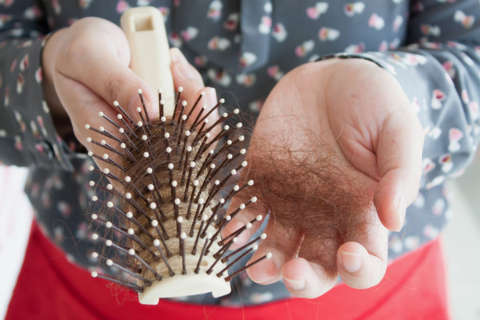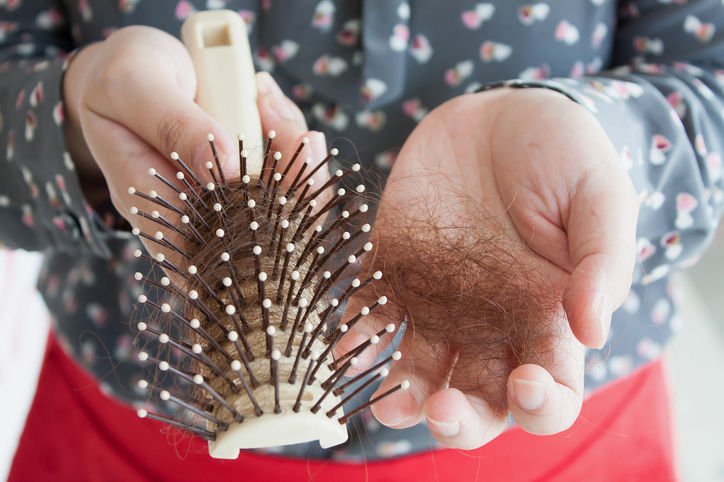
Pandemic-related stress may be causing people to lose their hair, and a Maryland doctor wants to reassure people that it’s not permanent.
“COVID-19 infection can lead to a type of hair loss called telogen effluvium,” said Dr. Jamie Goldberg, a dermatologist at Kaiser Permanente’s South Baltimore Medical Center.
It’s normal to lose 25, 50 or even 100 to 200 hairs a day. With telogen effluvium, hair comes out in clumps.
But the condition is reversible, Goldberg said.
It typically is triggered by a body going through some type of significant stress, such as an infection or illness — particularly ones that cause high fevers or hospitalizations.
Another common example is childbirth, which can cause temporary hair shedding that eventually corrects itself over time.
“So when speaking about COVID-19, specifically, we don’t know exactly how the virus creates or causes hair shedding,” Goldberg said.
“But we do think it’s related to our body’s immune response to the virus. This creates a lot of inflammation, and that somehow affects the hair follicles and causes the hair to shed in more amounts than what’s normal,” Goldberg said.
There’s typically a lag time of one to three months between the triggering stress and the impact of losing hair.
“The hair shedding typically peaks around four months after the illness and tends to correct itself maybe six to nine months after that,” Goldberg said.
It can take a full year for not only the hair to stop shedding, but also for it to go back to its previous thickness. Hair grows about 1 centimeter a month, so it’ll take some significant time to see some change even once the shedding has stopped.
“It just does take time and some patience to allow that to happen,” Goldberg said.
Telogen effluvium after COVID-19 doesn’t typically cause any other symptoms aside from the hair shedding. So Goldberg said to seek help for abnormal scalp conditions or if hair shedding persists.
“If you notice other symptoms like itching, burning pain, if you notice any shiny, smooth bald patches of your scalp, or hair loss that’s persisting longer than nine to 12 months, that’s not typical for a telogen effluvium, and that should definitely prompt a visit to your dermatologist,” Goldberg advised.









